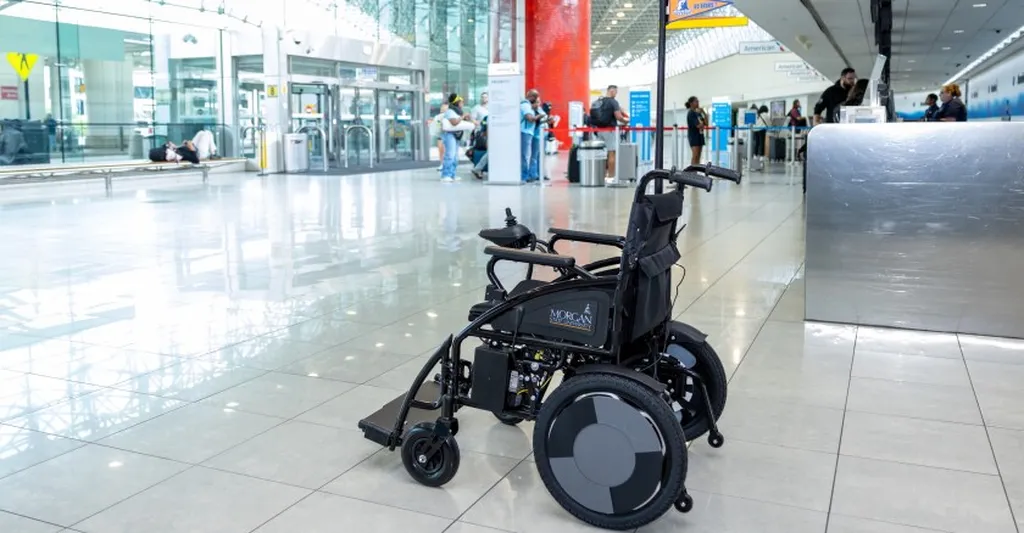In a groundbreaking development poised to revolutionize mobility aids, researchers have unveiled an autonomous wheelchair system that promises to enhance the independence and quality of life for elderly individuals and people with disabilities. The innovative system, designed by Narayana Murty Y. from the Department of Electronics and Communication Engineering at Bonam Venkata Chalamayya Engineering College (Autonomous) in Andhra Pradesh, India, integrates advanced automation and artificial intelligence to address the challenges faced by those with limited mobility.
The autonomous wheelchair leverages a suite of sensors to minimize the need for human intervention, fostering a greater sense of autonomy and reducing reliance on caregivers. “Our goal was to create a system that not only improves mobility but also empowers users by giving them more control over their daily lives,” said Murty. The wheelchair is equipped with an Android interface connected via Bluetooth, allowing for intuitive user interaction and control. Utilizing Raspberry Pi technology, the system processes and analyzes data to adapt to user needs, creating a reliable framework that evolves with the individual.
One of the standout features of this system is its ability to enable effective communication through head-mounted support, allowing users to record and relay information. This capability is particularly significant for individuals who may have difficulty speaking or using their hands. “We wanted to ensure that the wheelchair was not just a means of transportation but also a tool for communication and independence,” Murty explained.
The commercial impacts of this research are substantial, particularly in the energy sector. As the global population ages, the demand for advanced mobility solutions is set to rise. Autonomous wheelchairs that require less human intervention could reduce the need for caregiver services, leading to cost savings for both individuals and healthcare systems. Additionally, the integration of AI and IoT technologies in mobility aids could pave the way for smarter, more efficient devices that consume less energy and offer enhanced functionality.
The research was published in the ‘International Journal of Emerging Research in Engineering, Science, and Management,’ which translates to ‘International Journal of Emerging Research in Engineering, Science, and Management’ in English. This publication highlights the growing interest and investment in developing technologies that improve the lives of people with disabilities.
As the field of autonomous mobility continues to evolve, this research serves as a testament to the potential of AI and IoT technologies to transform traditional assistive devices. The autonomous wheelchair system developed by Murty and his team not only addresses immediate mobility challenges but also sets the stage for future innovations in the field. By fostering independence and improving quality of life, this technology has the potential to reshape the way we think about mobility aids and their role in society.

